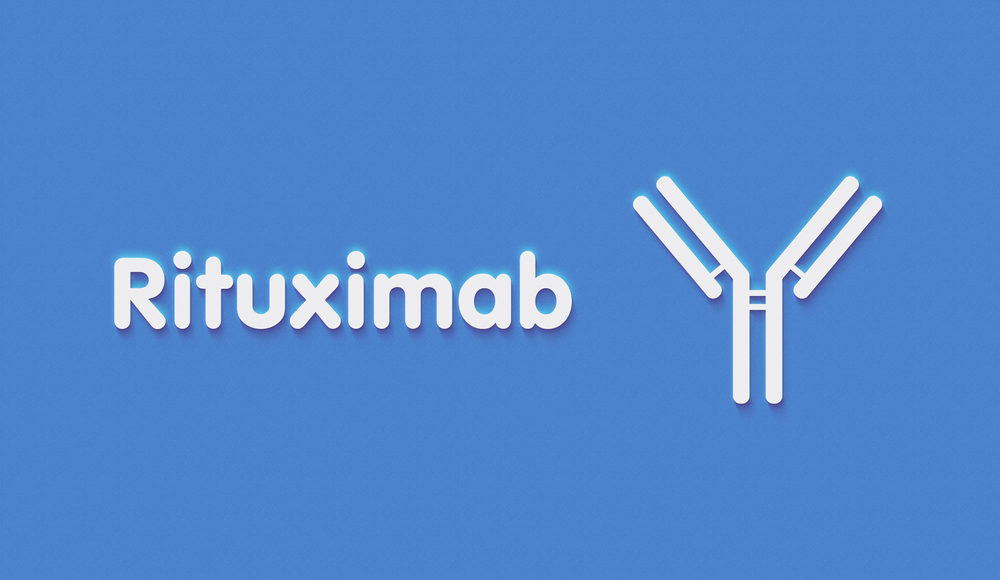Rituxan’s Effectiveness in MuSK MG Patients Varies with Different Regimens, Study Suggests

Weekly infusions of Rituxan (rituximab) for four consecutive weeks followed by a monthly infusion for two months may be more effective than other Rituxan regimens in treatment‐resistant, MuSK antibody-positive myasthenia gravis (MuSK MG) patients, according to a small Spanish study.
The study, “The impact of rituximab infusion protocol on the long‐term outcome in anti‐MuSK myasthenia gravis,” was published in the journal Annals of Clinical and Translational Neurology.
MuSK MG is a particularly severe form of myasthenia gravis, accounting for approximately 5 percent of MG patients. These patients typically respond poorly to standard treatment, compared with patients without MuSK autoantibodies.
Rituxan is a lab-made antibody directed against the CD20 protein found on the surface of B-cells, a type of immune cell that produces the autoantibodies that cause autoimmune diseases, such as MG.
Since Rituxan’s binding to CD20 lowers the levels of B-cells, it may halt the progression of MG and ease its symptoms. Several studies have shown the clinical benefits of Rituxan treatment in MG patients who are resistant to standard therapy.
In particular, Rituxan has proven more effective and to have a longer clinical benefit in MuSK MG patients than in those without MuSK autoantibodies. However, different regimens of Rituxan treatment are used in autoimmune diseases, and there is no established Rituxan regimen for MuSK MG patients.
To address this, researchers retrospectively evaluated the therapeutic benefits and safety of the three most commonly used Rituxan regimens in 25 patients with MuSK MG treated at 11 hospitals in Spain.
Clinical response was assessed through changes in Myasthenia Gravis Foundation of America post‐intervention status (MGFA PIS) and relapse rates. The primary measure of effectiveness was clinical relapse requiring the need for further infusions of Rituxan.
Patients were treated between Jan. 1, 2006, and March 31, 2016, with a mean follow-up of five years. Demographic and clinical data were collected at disease onset and during follow‐up.
Of these patients, 11 women were treated with a weekly infusion of 375 mg/m2 of Rituxan for four consecutive weeks and then a monthly infusion in the following two months (regimen 4+2). Four women and one man received two infusions of 1 g of Rituxan with two weeks between treatments (regimen 1+1), and nine women were treated with 375 mg/m2 of Rituxan every week for four consecutive weeks (regimen 4).
All patients showed clinical improvements after Rituxan treatment, achieving minimal manifestations of the disease, defined as no signs of functional limitations from MG but with some muscle weakness on examination, or an improved MGFA PIS. Rituxan treatment also led to a dose reduction or withdrawal of standard therapies in all patients.
Relapse occurred in two patients receiving regimen 4+2 (18.2%), in four patients in regimen 1+1 (80%), and in three patients in regimen 4 (33.3%). The mean time to relapse was 3.5 years in regimen 4+2, 1.1 years in regimen 1+1, and 2.5 years in regimen 4.
Patients treated with regimen 4+2 had significantly fewer and later relapses than those treated with the other two regimens. Patients under regimen 1+1 had a significantly higher risk of relapse, and those treated with regimen 4 showed a trend toward a higher risk of relapse, compared with patients in regimen 4+2.
No severe adverse events were reported, and the frequency of mild to moderate adverse events, which included fever, gastrointestinal and skin-related symptoms, was similar between the three groups of patients.
These results support evidence that Rituxan is an effective and safe treatment for MuSK MG patients, and suggest that the 4+2 regimen is the most effective.
“To minimize potential adverse events, we recommend re‐treating patients with rituximab in cases of clinical relapse only,” the researchers said.
While they recommended the 4+2 regimen for treating MuSK MG patients, they noted that additional and larger studies are needed to confirm the results.






